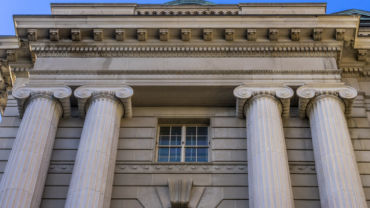国税局2021-25年公告(2021年4月8日)
美国国税局已发出通知,澄清购买餐厅食品或饮料的商业费用将有资格豁免50%扣除限额。通常,代码§274(n)限制粮食或饮料费用的另一种允许扣除额外的50%的费用,而是经过各种例外。例外包括被视为对雇员赔偿的费用,在报销安排下产生的费用,以及员工某些娱乐或社会活动的费用。综合拨款法案(CAA),2021年修订了加入临时例外的守则,以便在2021或2022年支付或产生的费用中放弃50%的“餐饮或饮料”的扣除限额(见我们的检查站文章)。该法令没有提供额外的细节,因此国税局发布了明确豁免范围的指导意见。
该公告将食肆定义为“为零售顾客制作或销售食物或饮料供即时消费的企业,而不论该等食物或饮料是否在营业处所内消费。”这一术语不包括主要销售非即时消费的预包装食品的企业。不符合条件的企业包括杂货店、便利店和自动售货机。该公告将雇主营业场所内用于提供不属于《守则》第119条规定的膳食的任何餐饮设施排除在餐厅定义之外。雇主经营的餐饮设施也被排除在外(根据法典第132(e)(2)条),即使该设施是由与雇主签订合同的第三方经营的。
EBIA评论:通知广泛的解释“餐厅提供的食物或饮料”包括收纳的意义鉴于大会在餐馆用餐的大流行相关的限制中援助餐厅行业的意图。The remainder of the guidance, however, narrows the waiver, e.g., by precluding any use of the waiver to obtain a 100% deduction for meals provided by an employer-operated eating facility that are excludable by employees as a de minimis fringe benefit under Code § 132(e)(2). The notice also denies restaurant status to an eating facility used to furnish meals “for the convenience of the employer” that are excludable by employees under Code § 119, but that shouldn’t preclude a full deduction for excludable takeout because Code § 119 requires that meals be provided “on or near the employer’s business premises,” not necessarily at an eating facility. Providing takeout to employees can raise other issues, however. For example, a 2018 IRS memorandum observed that the extensive availability of takeout food might undermine an employer’s ability to show that employer-provided meals are sufficiently necessary to justify excluding the meals from income under Code § 119 (see our Checkpoint文章)。有关更多信息,请参见EBIA的附加福利手册第十六节。B(“法典§119:为方便雇主而用餐”)和XVI.C(法典§132(e)(2):在餐饮设施用餐的最低限额除外”)。
贡献编辑:ebia员工。









